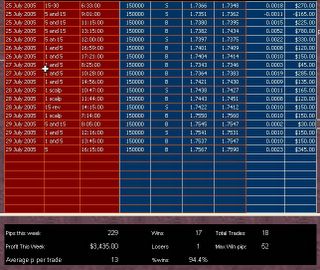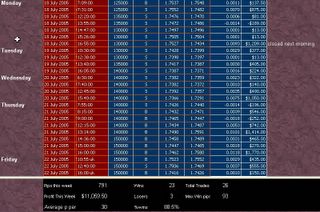Trading Insights for the Trend Trader
By Bennett McDowell, | |
You know that trading is a zero-sum game. This means that, for every winner, there is a loser. Successful trading is “Survival of the Fittest”! When you win, you are taking someone else’s money!
Trading education usually focuses on the skills it takes to be a “scalp”, “counter-trend” or “trend” trader. Historically, the most money in trading is made by following trends, which come in three varieties: Intraday, intermediate and long-term.
If you are a trend trader, you must realize that you will probably incur many losses while attempting to catch a significant trend. And, you must also understand that you may experience “draw-down” periods after strong performance periods. Knowing your style of trading and having a fearless mindset will give you the confidence to trade through those draw-down periods. Controlling your risk by calculating the proper “trade size” and using “stops” is equally important.
Trend traders are followers of the market, not forecasters! Trend-following trading systems apply rules to enter and exit trends at significant times. Volatile markets that go up and down will occur and, at times, can create draw-down for the trend trader. The problem is not that this happens, because it will. The problem is the fear this inevitability can cause in you. The trend is your friend; fear is your enemy.
Trend traders are usually on the correct side of significant market moves. Big trends are, more often than not, what make trend traders profitable. Missing these trends makes trend traders unprofitable. Significant trends usually occur after periods of volatility, causing the unprofitable trend traders to second-guess the trades they take because they fear being stuck in volatility again and incurring more losses. But, missing the next big trend is disastrous!
Fear is generated from a variety of sources personal to the trader. If you feel fear, you must ask yourself why. Your answer will determine your weakness as a trader. Deny your weaknesses, and your losses will create more fear, which will, in turn, remind you of your weaknesses. When this occurs enough, you will do one of three things: Work to overcome your weaknesses, quit trading or go bust.
Traders who experience thoughts of fear or failure should not take these thoughts lightly. Instead, they must find out what is causing these thoughts and take action to nullify them. Traders who fear failure will ultimately fail. Traders who fear success will not succeed.
If you have these feelings, don't trade until you deal with them openly, where they will be less powerful than if they are denied. You must confront the feelings and remove their power, so they don't occupy your thoughts. A trader's improperly managed fear can manifest itself in losing trades even with a well tested and sound trading system or approach.
It is important to realize that you must react to and be aware of the risks involved in trading the financial markets. Many "positive thinkers" preach that, if you think ONLY positive thoughts and say ONLY positive affirmations, you will succeed. While this may be a good start, it falls very short of what is really needed.
For traders to enter the financial markets blindly and start trading simply because they are thinking positive is to ignore the full spectrum of what is possible while trading the markets. Let your positive beliefs lead you to take the action necessary to succeed. You must acknowledge both sides of the coin, the good and the bad, and act with full awareness.
To think only positive thoughts or anticipate only positive outcomes would cause you to neglect to put risk control measures in place. That would only lead to your going broke. On the other hand, to live in constant fear of losing will cause you to react with anxiety, negativity and aggression, which is equally destructive.
To trade the markets with the pro-action and pre-emption of full awareness, and without fear, anxiety or despair, allows a trader to have the kind of balance that manifests itself in a positive reality, ultimately resulting in the desired success.
Trade well!



.bmp)

 8:08 AM
8:08 AM
 Ovia
Ovia

















